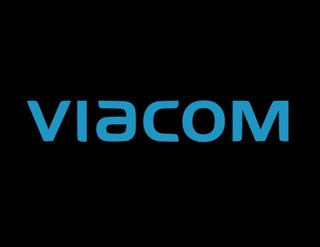Freston Unloads on Dauman

A decade after he was unceremoniously ousted as CEO of Viacom, Tom Freston had some harsh words for his replacement, telling CNBC Wednesday that Philippe Dauman has led the once proud media company through a “series of errors” and should be removed.
The former chief’s comments came as Dauman is fighting a battle for survival with Viacom’s largest shareholder Sumner Redstone, who has ousted the current CEO from the trust that will control his shares after his death or incapacitation. Earlier Wednesday (June 15), Redstone sent an e-mail to Viacom board member Fred Salerno stating that he no longer trusted Dauman or the board.
Freston, who helped create MTV and countless other Viacom networks, was fired in 2006, reportedly for a failure to buy then-online jewel MySpace. News Corp. snapped up MySpace in 2005 for $580 million. Six years later it was sold for $35 million, a fraction of its original value.
Freston said Dauman has failed to embrace the digital culture that is at the heart of Viacom’s core audience – kids, teens and young adults – instead adopting a litigious stance that has backfired.
“Litigation became a key tool,” Freston told CNBC, according to a transcript. He pointed to Viacom’s decision to sue YouTube in 2007 for $1 billion for copyright infringement instead of recognizing that the online video pioneer was becoming a top destination for young viewers and trying to establish a relationship. That decision, Freston said “froze Viacom for years on the sidelines, unable to really make any digital moves.”
Viacom finally settled the suit in 2014, which Freston said netted the programmer nothing, but cost them “tens and tens of milions of dollars” to litigate.
“There’s been a series of pretty serious errors,” Freston said.
Multichannel Newsletter
The smarter way to stay on top of the multichannel video marketplace. Sign up below.
While he didn’t believe it was is place to call for Dauman’s removal, Freston said Daman hasn’t been “the optimal leader for the company” and that he isn’t the right man for the job.
That right man would be someone familiar with pop culture and young audiences.
“The person who holds that chair should be somebody who is turned on, attracted to and somewhat knowledgeable about the creative community and the popular culture and what's going on there, and to be able to telegraph that and inspire the employees of the company behind that vision,” Freston said. “You can't run an entertainment company through lawsuits.”
Freston said he would not come back to the run the company, nor has he been asked to, adding that he has moved on with his life and is an investor in Vice Media, the millennial-focused media conglomerate.
Viacom still has great brands, the former CEO said, and could be rejuvenated with a younger board and new, creative management.
“By no means have they reached the point of no return, and I think they could be rejuvenated,” Freston said. “America loves a second act.”
But he also wondered why Dauman, obviously under pressure from Redstone to throw in the towel, still holds on.
“For me, when the Redstones don't want you, when Wall Street doesn't seem to want you, and when from what you can hear, there's not a huge amount of support for him in the company, you've got to wonder what's the game he's playing,” Freston said. “What's the point?”
In a statement, Viacom said the company is “significantly bigger, more global and generates far more profits today than when Philippe Dauman's predecessor left office in 2006."
The statement continued: "Philippe has doubled the amount of investment in creative programming over his tenure to more than $6 billion annually, and has grown Viacom to be the #1 family of cable networks and the #1 destination on all of television for reaching younger audiences. Philippe has overseen substantial and consistent growth in the company’s international business, which is now on track to generate $1 billion in revenues by 2020. Viacom is making more global hits than ever before, exemplified by recent successes such as Lip Sync Battle now airing in 96 countries. Philippe has also brought in new creative leadership to reposition key networks, which is now driving ratings turnarounds, and has overseen an overhaul of the company’s advertising sales engine to deliver innovative data-driven products. The company has generated billions of dollars in new distribution revenues from emerging digital platforms while at the same time more than doubling affiliate revenues since 2006.”
